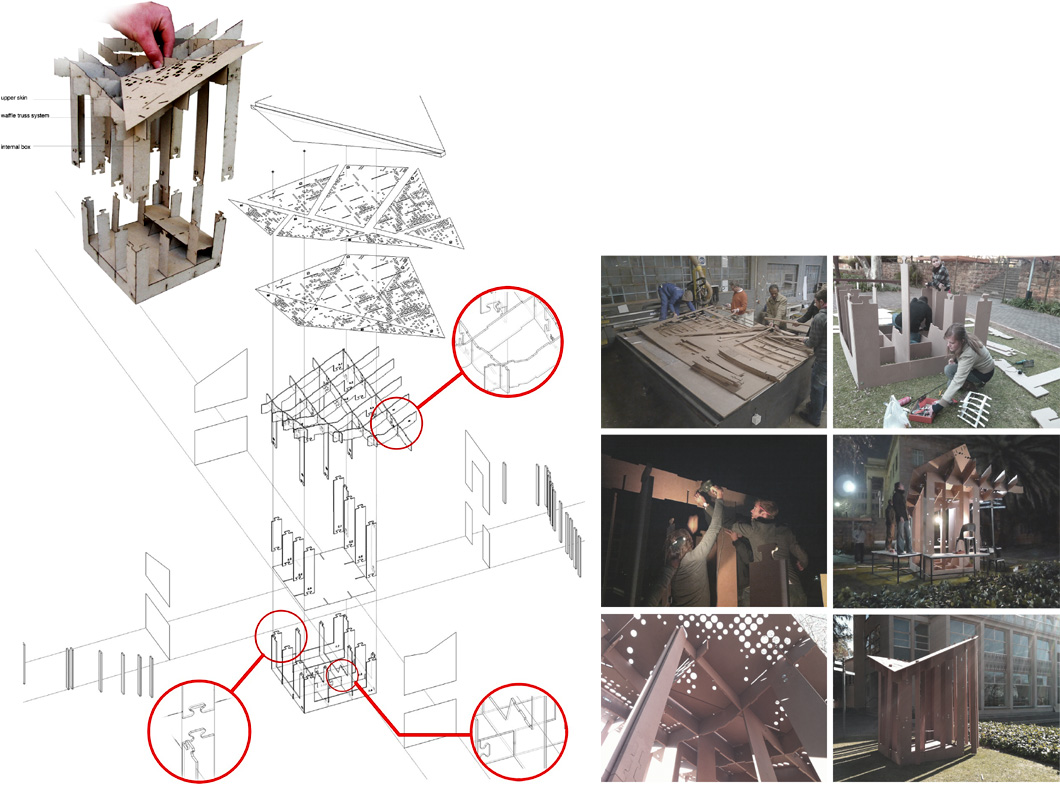Directors and several staff at Urban Systems are involved with part-time academic teaching though design studios and short workshops, at the Architectural Association in London and other institutions around the world.
Jeroen van Ameijde has been involved with academic activities at the University of Pennsylvania, the AA and several other institutions in various capacities for more than fifteen years. Brendon Carlin has taught in research studios at the Berlage Institute in Rotterdam, various programmes at the Architectural Association and at Harvard’s Graduate School of Design. They have been teaching together at the AA since 2008 through various workshops and Visiting Schools and since 2010 as Unit Masters of Intermediate Unit 6 which explores the application of innovative digital design and construction processes within developing urban centres.
Our current research covers digital design, innovative construction technologies and contemporary urbanism. Summarised under the term ‘generative design’, we investigate new methodologies to incorporate detailed information and simulations of the multiple functionalities of possible design solutions. Instead of using digital tools to create designs with a formal complexity that would be highly uneconomical to build, we set up integrated design processes where an appropriate ‘functional complexity’ is found within the constraints of the applicable construction methods and material systems. This ‘functional complexity’ is carefully calibrated through our research into the material, environmental and spatial performance criteria that apply to public and private spaces that make up the fabric of the city. Our research considers the contemporary city as a complex system of interrelated networks of material, social and cultural exchange, using the analogy to natural ecosystems to understand the relationships between physical environments and the enabling of many interactions at different scales and periods of time.
Our digital design methodologies allow to carefully control the variations in the qualities of the city, to create urban areas and buildings with very different and mixed types of spaces to allow for flexibility and synergy between different programs. Our ultimate goal is to foster innovation, economic vibrancy and a new urban culture through urban and architectural designs that are sustainable from an economical, environmental and cultural point of view.
The academic projects shown here are the outcomes of several design studios, visiting schools and other workshops, often taught in collaboration with other leading academic researchers and tutors. The majority of the work is produced at several different international AA Visiting Schools, the AA Design Research Lab graduate programme and AA Intermediate Unit 6.













